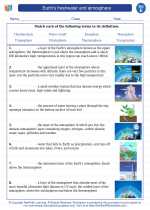Scientific Method
The scientific method is a systematic way of investigating the natural world through observation, experimentation, and analysis. It is the foundation of scientific inquiry and is used by scientists to develop and test hypotheses, make predictions, and draw conclusions based on evidence.
Steps of the Scientific Method
- Observation: The first step is to observe a phenomenon or ask a question about the natural world.
- Hypothesis: Formulate a testable explanation or prediction based on the observations. A hypothesis should be specific and measurable.
- Experimentation: Design and conduct experiments to test the hypothesis. This involves collecting data and making detailed observations.
- Analysis: Analyze the data collected during the experiment to determine if the results support or refute the hypothesis.
- Conclusion: Draw conclusions based on the analysis of the data. If the hypothesis is supported by the evidence, it may become a theory or a law. If not, the process begins again with a new hypothesis.
Key Concepts in the Scientific Method
- Variables: In an experiment, there are independent and dependent variables. The independent variable is manipulated by the experimenter, while the dependent variable is the response that is measured.
- Controlled Experiment: A controlled experiment is one in which all variables except the one being tested are kept constant. This allows for a fair comparison between the control group and the experimental group.
- Reproducibility: Scientific results should be reproducible, meaning that other scientists should be able to replicate the experiment and obtain similar results.
- Peer Review: Before scientific findings are published, they are typically reviewed by other experts in the field to ensure accuracy and validity.
Applications of the Scientific Method
The scientific method is used in a wide range of scientific disciplines, including biology, chemistry, physics, and environmental science. It is also applied in fields such as medicine, engineering, and social sciences to solve problems and advance knowledge.
Study Guide
To study the scientific method, it is important to understand the steps involved, key concepts, and applications. Here are some tips for mastering the topic:
- Memorize the steps of the scientific method in order: observation, hypothesis, experimentation, analysis, and conclusion.
- Understand the difference between independent and dependent variables in an experiment.
- Practice designing controlled experiments and identifying the control group and experimental group.
- Review examples of scientific studies and analyze how the scientific method was applied in each case.
- Explore real-world applications of the scientific method in different scientific fields.
By mastering the scientific method, you will develop critical thinking skills and be able to approach problems in a logical and systematic way.
[Scientific Method] Related Worksheets and Study Guides:
.◂Science Worksheets and Study Guides Fifth Grade. Earth's freshwater and atmosphere
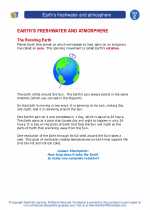
 Activity Lesson
Activity Lesson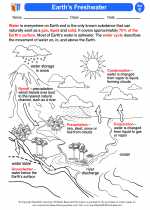
 Worksheet/Answer key
Worksheet/Answer key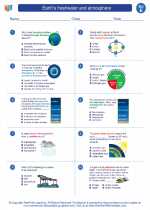
 Worksheet/Answer key
Worksheet/Answer key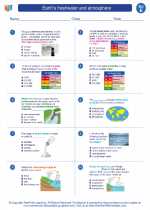
 Worksheet/Answer key
Worksheet/Answer key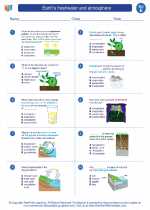
 Worksheet/Answer key
Worksheet/Answer key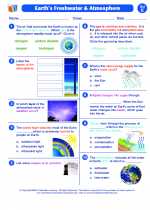
 Vocabulary/Answer key
Vocabulary/Answer key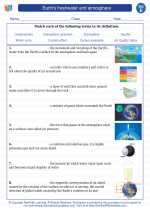
 Vocabulary/Answer key
Vocabulary/Answer key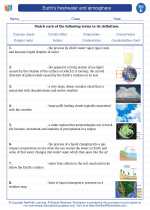
 Vocabulary/Answer key
Vocabulary/Answer key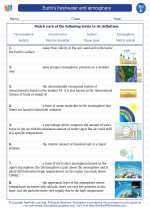
 Vocabulary/Answer key
Vocabulary/Answer key